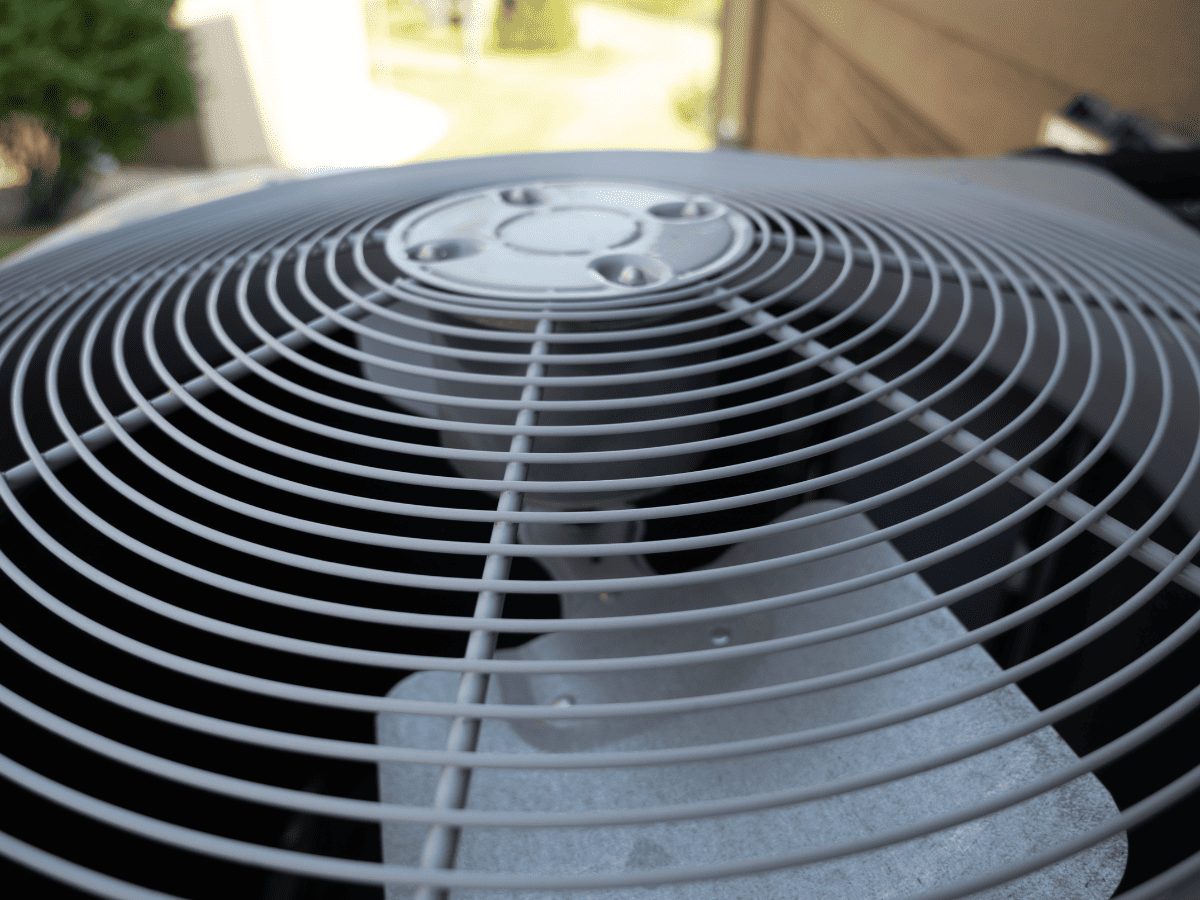When your air conditioning unit starts behaving unusually, it’s often a sign that there’s a component malfunctioning, and one common culprit could be the condenser fan motor.
If you’ve ever thought to yourself, “How do I know if my AC condenser fan motor is bad?” this blog post is for you. Today, we’ll be discussing the signs related to a bad condenser fan motor to help you identify potential issues before they morph into full-blown problems.
Remember, your AC unit’s health is crucial for home comfort, and early detection of faults can save you both time and money.
However, while our goal is to educate you, we highly advise against DIY fixes. If you recognize any of these symptoms, it’s best to reach out to a professional HVAC technician for a safe and efficient solution.
So what are the signs of a bad condenser fan motor? Let’s delve into the details.
How do I know if my AC condenser fan motor is bad? — 4 potential reasons
Let’s explore the four leading indicators that you have a bad fan motor on your AC unit. These signs are not to be ignored as they are often the initial warnings that something is amiss.
1. Rising temperatures
If your living spaces don’t seem to cool off despite your AC unit running continuously, your condenser fan motor could be to blame. This essential component aids in dissipating heat, and when it malfunctions, the cooling effect decreases, leading to uncomfortable indoor temperatures.
2. Unusual noises
Another symptom that points to a potential condenser fan motor issue is unexplained, repetitive noises coming from your AC unit.
If you hear rattling, buzzing, humming, or screeching sounds, it might indicate fan motor wear and tear or a more serious internal problem.
3. Circuit breaker trips
A faulty condenser fan motor can overload the circuit breaker. If you notice the breaker tripping frequently when your AC operates, it could be a signal your fan motor isn’t functioning correctly.
4. Overheating/burning smell
When the condenser fan motor fails to operate effectively, it can lead to overheating. If you note a burning odor from your AC, switch it off immediately and seek a professional’s help.
Congratulations! Now you know how to tell if an AC fan motor is bad; however, if you notice any of these symptoms, please refrain from DIY troubleshooting. Instead, we urge you to call a qualified HVAC technician to ensure a swift and safe resolution.
How to test an AC fan motor — an expert guide for homeowners
Testing an AC fan motor is a task best suited for HVAC professionals. However, with basic knowledge of electrical systems and how they function, conducting an essential fan motor test should not be difficult. Here is a step-by-step guide:
- Turn off power
Safety should be your primary concern. Make sure to turn off the power supply to your AC unit before you begin. This could mean unplugging the unit or switching off the relevant circuit breaker.
- Access the fan motor
Remove the AC unit’s outer casing to access the fan motor. The casing usually has screws or clips holding it in place. Keep a note of how you disassemble the unit to ensure a smooth reassembly.
- Identify the wires
AC fan motors typically have two wires: a hot wire (usually black or red) and a neutral wire (normally white).
- Set up your multimeter
Ensure your multimeter is set to measure AC voltage. Connect the black (negative) probe of the multimeter to the neutral wire and the red (positive) probe to the hot wire.
- Turn on power
After ensuring all connections are secure and you’re standing clear of the AC unit, turn the power back on.
- Take a reading
Your multimeter should now show a voltage reading. The specifics can vary, but a typical functional fan motor will show a reading between 110 and 120 volts.
- Interpret the results
If your reading falls within the typical range, it suggests your AC fan motor is receiving power and should be working. If the reading is significantly lower or you’re not getting a reading, your fan motor is likely faulty.
Remember, this test only identifies whether power is reaching the fan motor, not the motor’s mechanical functionality. If your AC continues malfunctioning after this test, consult a professional HVAC technician.
AC issues: Bad condenser fan motor symptoms – conclusion
In conclusion, understanding the signs of a bad condenser fan motor and knowing how to test your AC fan motor are crucial steps in maintaining your air conditioning unit. While the signs might be subtle at first, recognizing them early can help prevent a complete AC breakdown.
Multimeters can be valuable tools in troubleshooting an AC fan motor, providing an essential part of its diagnostics process. However, it should be kept in mind that only power supply testing should be undertaken – not mechanical functionality testing.
Don’t let AC issues ruin your comfort or jeopardize your well-being. If you’ve noticed any signs of a faulty condenser fan motor and your own testing didn’t solve the issue, it’s time to call in the professionals. For expert advice and prompt assistance, contact us at Hurliman Heating & Air Conditioning.
Remember, it’s not only about maintaining your home comfort but also about your safety and well-being.





